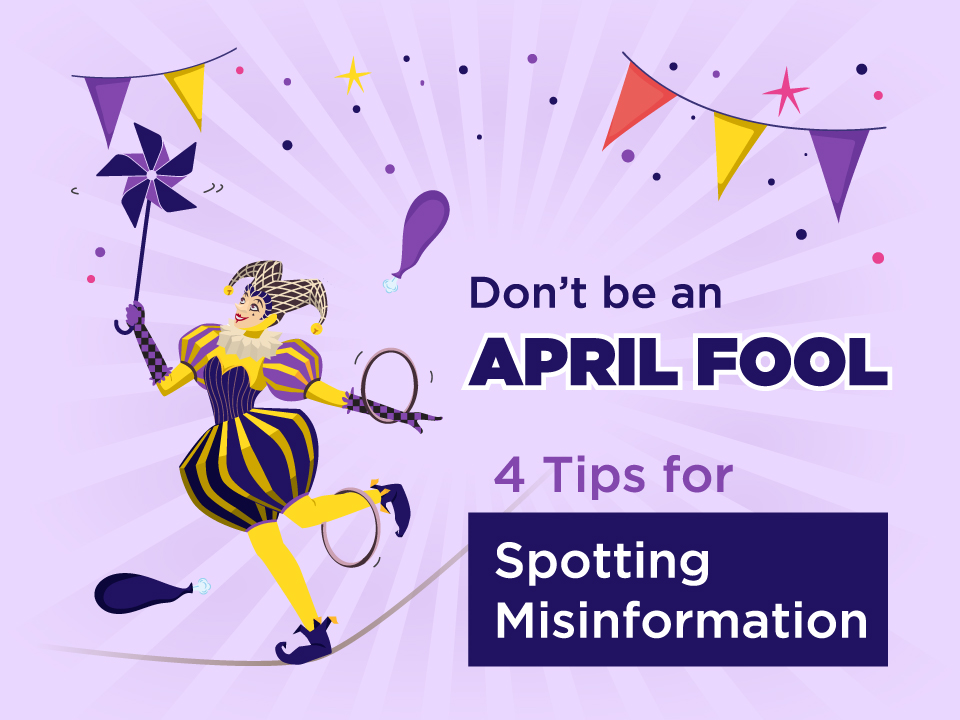
4 Tips for Spotting Misinformation
The advent of the true “24-hour news cycle” (online and through 24-hour cable news networks) has been a blessing and a curse for those of us in the PR field. The blessing is more news outlets, more opportunities to share your clients’ news, and ease of social amplification with “click-to-share” links to coverage you worked so hard to secure. The curse is the proliferation of click-bait headlines, “fake news” and internet trolls who spread misinformation and rumors faster than wildfire.
Usually, these posts are full of spelling mistakes, grammatical errors and misinformation. They may be picked up by web crawlers and republished quickly by sites that make money by driving eyeballs to ad-laden pages. While these sites are not considered mainstream media, the sting still hurts. And like grey hairs, the more you try to pluck one bad source, the more they seem to show up.
What’s the key to not falling victim to fake news? Don’t click the link. Don’t engage the trolls. Ignore the misinformation; that’s what kills the cycle.
Unfortunately, the 24-hour news cycle and social media sharing have made “fast news consumers” of almost all of us. We scroll headlines, maybe read the first paragraph or two, and instantly decide whether or not to share what we’ve seen. This practice is what has brought us to the precipice we are so precariously balancing on today.
Don’t give in to the sensationalism!
Here are 4 tips for identifying misinformation:
- Check the facts! If you think you just read an outrageous headline that’s hard to believe – search for more information online. Is this news or just a rumor? Are well-recognized news sources reporting this? If not…. is it an incredible scoop or just click bate? Research the author. What else have they written? If this seems like too much work, then just move on. But don’t share the information/link unless you feel confident it’s true.
- Confirm the date. Double-check the original date of publication – is this old news? Or, an old opinion or rumor? Just because someone else shared it today doesn’t make it news.
- Research the source. We may have different opinions on what makes a news agency “reputable,” but can you objectively say the original source of the content is considered objective and operates with integrity? If you’re not sure, see what others are saying about it online. Equally important – conduct a search for the topic or even the headline, where else has it appeared?
- Be mindful of bias. The internet gives everyone a platform. Journalistic integrity does not apply to all who post content. If the content comes from a source with a particular bias, it may be a tool to drive a certain reaction and not a factual, balanced piece of information. And, in fact, few of us can honestly say we aren’t biased in some way. I love satirical news about certain politicians, for example. Know your own bias and objectively ask yourself if what you are reading is news or if it is content meant to trigger you in some way - is the source trying to hit a nerve? If so, consider whether this is really news, or misinformation.
The bottom line is: unless you know it’s not fake – don’t share it!
